Our Military Contributors:
LT General Michael Flynn – US Army (Retired)
LT General Russel L. Honoré – US Army (Retired)
Maj General Paul E Vallely – US Army (Retired)
Colonel Michael Ward – USAF, US Army (Retired)
Colonel Rob Maness – USAF (Retired)
Commander Cliff Alligood – US Navy (Retired)
Captain / Chief Warrant Officer 3 David Harmes – US Army (Retired)
Chief Master Sgt Michael P Wenzel – USAF (Retired)
Today marks 100 years since the end of WW I, the “war to end all wars” and yet, our battle goes on preserving our freedoms and safety for the United States.
The military is a huge, complicated, involved machine of people, equipment, logistics, planning and execution all intertwined to operate worldwide in nearly 150 countries.
There are currently about 16.1 million living veterans who have served in at least one war, with 5.2 million living veterans having served during times of peace. And while many times our Hollywood celebrities are seen to fight against our displays of patriotism, many of them have served our country.
Morgan Freeman joined the Air Force in 1955
The late Bea Arthur, known on Golden Girls, served as a truck driver and typist in the USMC, was honorably discharged in 1944 as a Staff Sergeant.
Tom Selleck served in the California Army National Guard from 1967 to 1973
Clint Eastwood served in the army during the Korean War and discharged in 1953
Ice-T joined the army in 1977 and was honorably discharged.
Drew Carey enlisted in the U.S. Marine Corps in 1981 and served 6 years.
And of course we know the long list from the past including Charlton Heston, Hugh Hefner, Elvis Presley, Chuck Norris, and yes even Jimmy Hendrix enlisted and was assigned to the 101st Airborne Division having completed paratrooper training. Many others also felt that military service was part of a right of passage into full citizenship responsibility.
The professionals that have joined this written honorarium have collectively committed hundreds of years of service to our country, served in countless theaters of war and scenarios of battle and peacetime activities. Their leadership has saved lives, protected this country and served as an example of the truest patriotism to be honored and mirrored.
This is Part 3 of our series covering areas such as changes in technology, military leadership, respect of the military, a touch of politics, and the VA. Part 1 and part 2 can be FOUND HERE:
RB ~ In many military occupational areas, there have been tremendous changes in technology from battlefield communications and weaponry, medical practices, surveillance, etc. Did you have opportunity to participate in the growing technology trends or during your time would you have benefited from it?
FLYNN ~ “Our survival instinct is so strong and it causes so many things to change in our behaviors when you’re in combat under severely stressful conditions, especially when lives are on the line. That is why innovation occurs on the battlefield more than in any other human endeavor.”
HONORĖ ~ “We certainly have optimized technology with precision fire that can dominate a battle. But we’ve also come to realize, as wonderful as that technology is, it takes men and women to win a war, to engage with people, to blow the bridge up today and build it back tomorrow when you’re transitioning to peace. Fix the water system so people have clean water and try to allow them to have a shot at the freedom. And I’m not saying democracy: the freedom as they want it. Sometimes we make that step to say, okay, we’re going to make you a democracy.
In many cases, we win the battle but we haven’t won the war. But it takes soldiers to win the war. It takes boots on the ground.
Technology, the way you look at it, is a tool – which means it should assist you at being more efficient. On the other hand, a technology can overexpose you. We went into Afghanistan and everybody had their thumb drives. And then, when you sent officers to conferences and you got free thumb drives, guess what? The Chinese that build these thumb drives had built cookies in them and they were able to come in and extract things off some of our computer bases. And we had soldiers lose things, so you lose a thumb drive in Afghanistan, you go to the local market and you figure out this guy was a personnel clerk for the battalion. And 1,200 soldiers’ individual information is on his thumb drive and this guy is trying to resell it.”
VALLELY ~ “Absolutely”
WARD ~ “Absolutely, military medicine has been on the forefront of civilian medical advances. Our survival rate is unmatched in the world.”
MANESS ~ “I had the opportunity in the aviation world but not in my EOD enlisted time. I did benefit from the advances in aviation tremendously. I would have definitely benefited from the new robotic EOD tool and information gathering technology for sure.”
ALLIGOOD ~ “I was involved deeply in a few generations of Information Technology during my service.”
HARMES ~ “In my 40 years, I saw changes and advancements that I could not have even dreamed of when I joined. At the same time, some of it makes our soldiers more dependent, or afraid. For example, we spent 2 days, setting up a sweep through a town in northwest Afghanistan. Right after we have 2 companies of Afghan Soldier (ANA) spread through the far side of town and all the gun trucks on the other. A full Colonel, more than 200 miles away, (more than a days drive) starts telling us, he does not like our deployment (he can see our vehicle location on a computer), ordering us to leave. Then when we don’t, he gets upset. The ANA company commanders (plus the US officers with them) were all ready meeting with the village elders. Distractions like this can get people killed, because the leaders (on the ground) are trying to explain every move they make, instead of paying attention to want is actually going on around them.”
WENZEL ~ “Oh yes, my job had some of the most sophisticated equipment available. I did notice the dumbing down of our airman in order to improve aircraft availability. There was less troubleshooting and more swap and pop. Also our technical school was drastically reduced form 9 months to just a few weeks.”
RB ~ Is your particular area of service, or the military in general, finding it harder to perform their duties given the enemies we now face and their use of expanded use of certain weapons, i.e.: IEDs, chemical, or threatened nuclear.
FLYNN ~ “The battlefield, whether we like it or not, becomes the modern laboratory for innovation. Why? It is because our enemy has a vote! Our enemies adapt as well or better and faster than we do. They have far less bureaucracy to contend with. I benefited from and drove innovation on the battlefield and also faced extraordinary pushback directly from some (not all) Pentagon bureaucrats who thought they knew better what we needed. I believe that is still the case today. All said, there are good people in the chain (up and down) that seriously try to help and jump through professionally dangerous hoops to cut through the red tape…if it saves even one life, it is worth it.
Last point on this…if you have never served in combat you have no idea what I’m talking about.”
[ RB ~ Are we approaching that time when the military will be used more at home?
FLYNN ~ “Remember our Constitutional Oath is to protect and defend against all enemies, Foreign AND Domestic…! From what I can tell, I believe the President and his homeland security and defense department leaders have made the right set of decisions. (regarding the southern border situation)” ]
HONORĖ ~ “I think all the services, starting with the [Joint Chiefs] Chairman, with the Secretary of Defense, have more focus on the combat lethality to deal with the conventional threat.
I think, when we look at things like the pandemics like Ebola and others, that these diseases that come from a crossover between humans and animals have always occurred. The difference now is they move at 500 miles an hour. You get on the airplane with somebody… That’s an existential threat to peace and security in the world.”
VALLELY ~ “Very challenging for sure. Requires different tactics, strategy, weapons and training.”
WARD ~ “Not in Medicine.”
MANESS ~ “Not really.”
ALLIGOOD ~ “Not applicable to me given how long since on active duty.”
HARMES ~ “In my opinion, for the soldier it really is no difference (the enemy has always had these things, some in just different names). The leadership (became afraid, of loses, zero tolerance), because news media fear mongers these things, which scares the public, scaring the politicians, which tells the leadership, no mistakes (the spiral continues).
Where I was in Iraq in 2004 – 2005, they had an alarm. They sounded for everyone to go into bunkers / shelter, in case of an attack. The camp had an average of 4 a day for the year I was there. Most every day, I knew where exactly where 1 of them (rocket / mortar) impacted. Because it was shoot at me. The alarm would sound about 5 minutes after the impact (in other words after the attack was over). The alarm made the shooter successful, because it shutdown the camp for about 30 minutes, every time.”
WENZEL ~ “I’m guessing it’s always been hard, but as Americans we will adapt to each and every battlefield we are exposed. I was in SAC and even in the 80s we spent plenty of time in chemical suits and masks.”
RB ~ I’m always amazed to see the acceptance of military personnel in airports etc. As we celebrate Veteran’s Day, have you over time, or are you now seeing a different level of honor shown our service personnel? And what would have precipitated that?
FLYNN ~ “Most American people still revere our military and I hope that never changes. And I see even more of this as I travel around the Country.”
VALLELY ~ “Yes. It is excellent. Great women and men.”
WARD ~ “I believe that in general military personnel are given great respect and support.”
MANESS ~ “I came in when the Vietnam war was still at top of mind and we were told not to wear uniforms off base or in airports because of the spitting and yelling we might face even then. Today is much different but I have noticed that the left in the country is showing its true colors again more and more. During the Kavanaugh hearings I saw veterans being attacked by protestors, verbally and physically, just because they were veterans. Lets hope we don’t return to those days, our young men and women deserve better.”
ALLIGOOD ~ “Today it is – thank you for your service. I even get that when I wear a ship cap. It was not always this way. I remember landing back in the states at Travis AFB after my tour in Australia in July 1968 and the hostility of people when we arrived at San Francisco IAP. I also experienced the organized protests at Fort Dix and McGuire AFB when I was stationed at McGuire – ’68-’70.”
HARMES ~ “Living remote, and not traveling, I do not know how or if there are any changes, in recent years.”
WENZEL ~ “Oh yes, that never happened during the Vietnam War. Many times, we were told to not wear our uniforms in public. I did anyway…”
RB ~ After leaving the service, did you ever consider returning?
FLYNN ~ “I did not consider returning to the Military, although I felt a strong desire to continue to serve our Country in other ways and capacities.”
VALLELY ~ “No”
WARD ~ “Not yet.”
MANESS ~ “NO, 32.5 years, had a great ride, but my time was up.”
ALLIGOOD ~ “If only…….. No, I did my 30+ years of a great ride.”
HARMES ~ “No, when I retired, I was beyond any consideration of returning, being too old and wore out. I probably stayed beyond my usefulness as it is.”
WENZEL ~ “No but I did join the Civil Service and continued on serving our country actually in the same job as it transitioned from blue suit to Civil Service.”
RB ~ Do you see enough of a separation between politics and the military? Has it gotten better or worse in the last 10-15 years?
FLYNN ~ “I believe the issue of political correctness crept too far into our ranks and needed to be excised out. We had / have some military senior people and many civilian seniors who look “up” instead of focusing “down” on the troopers who need their leadership, support and the resources these senior officials can bring to bear in order to have the finest fighting force on the planet.”
[ RB ~ It seemed that during the Obama years, ROE were warped, and limited or non-engagement was more the norm putting our forces and objectives in danger.
FLYNN ~ “What I will say about ROE is that they must be simple for the basic Soldier to understand and execute (almost on instinct). And they cannot and should not be changed often, especially on the battlefield. There are simply too many complexities and dynamics as well as a great deal of stress and confusion. ]”
HONORĖ ~ “Democracy: the freedom as they want it. Sometimes we make that step to say, okay, we’re going to make you a democracy. Well, they’ve got to make themselves a democracy, if that’s what they so choose.”
VALLELY ~ “Worse, especially with the Senior Officers. Our ROE was bad, forces and objectives were more in danger during the Obama years.”
WARD ~ “I believe that politics will always play a part in military decisions and strategy, I see less of the micromanagement now.”
MANESS ~ “About the same except, during the sequester years politics played a direct role in degrading our readiness while trying to fight the war too. Now that Obama is gone, we’ve changed that issue.”
ALLIGOOD ~ “Cannot say since I was not on active duty. I was not in during the Obama years and only know that Obama downgraded the forces and our military readiness.”
HARMES ~ “I do not think there is enough separation. Military has always been political, but it seems, to be getting worse.”
WENZEL ~ “I don’t remember as much when I was in the service. Only recently have I seen politics impacting our long standing traditions.”
RB ~ Are there any areas you see that would benefit from creative thinking, more efficiency, more or less upper intervention that would improve the day to day operations?
FLYNN ~ “Yes…and people with these type of qualities (i.e., creative thinkers) should be protected—most times they are not. My other thought on this question is that we have become a process-oriented military and not an outcome-oriented military. Our outcome should be to win, that is how we should be judged, and not graded on how effective we are on the process. What results did you achieve? For instance, we’re still fighting wars that should have ended years ago and we’ve lost focus on why.”
VALLELY ~ “Constantly changing. Now we will have a Space Command, more focus on terrorism and cyber terrorism.”
WARD ~ “Not really”
MANESS ~ “We need to get away from rigid rule sets and move toward an innovation mindset day to day, not just for special projects. In combat, both ground and air, our success is because our youngest, and lowest ranking combatants are empowered to innovate on the battlefield. We must do this throughout the corporate culture of all services (then we can reduce the overhead budgets and prioritize resources to the mission at all times, not just when there is a specific challenge.”
ALLIGOOD ~ “I can’t answer for the service today.”
HARMES ~ “The army, because of technology, has become and has stymied creative thinking. Leadership is more intrusive, and maybe even less efficient. Technology, has commanders looking over the shoulder of so much more than ever, so before anyone does anything. Instead of looking what the enemy is doing, they look behind them, what does their leader think, who is looking behind them, who are looking behind them.
Equipment has become almost un-repairable, without a bank of computers, to diagnose the problem, So much so, some sensor that got dust on it can shut down an entire system.”
WENZEL ~ “Oh heck yes, there is plenty of room for process improvement. I pushed 6 Sigma, Lean, and their associated process improvements. It’s much harder to get buy-in from middle management. Upper Leadership and the shop floor is much easier to convert. Also many metrics used in the DOD go against good process improvement.”
RB ~ Are you, as a veteran and other veterans in general, staring to receive better benefits such as from the VA, retirement, education and other elements that adequately reward them for their service?
FLYNN ~ “I am, and I am satisfied with the interaction from those healthcare professionals that I’ve encountered in the VA. The bureaucracy sometimes seems to take forever, but my time in the military taught me to be patient and if everything is in order, the system eventually corrects itself. It is not perfect, but it eventually gets the job done. That said, any ethical or moral issues inside of the VA need to be dealt with immediately and those negatively affected need to be our first priority and get taken care of…”
VALLELY ~ “Yes , since I retired in 1992.”
WARD ~ “I believe that VA will continue to fail countless Veterans – that is what socialized medicine does.”
MANESS ~ “Not really. The claims process is atrocious. I spent today with a retired USMC Sgt Major (30 years of service, in 6 wars), a purple heart recipient that has zero VA disability rating. That’s inexcusable.”
ALLIGOOD ~ “I receive my military retirement. I did used my educational benefits while on active duty and achieved an Associate Degree, Bachelors Degree and MBA with the in-service GI Bill. I was selected for the Navy’s College Degree Program as a Lieutenant and completed a Bachelors Degree with full pay and allowances for 15 months at Eastern Connecticut State University in ’87. Under the program I had to pay for all tuition and college expenses, used the in-service GI Bill. I obtained a GED within 4 months of reporting to WASP in 1964.”
HARMES ~ “Personally yes. The VA is taking good care of me.”
WENZEL ~ “Actually I am retired with no health problems so I never needed Veterans Health Benefits. Tricare and Medicare seem to be working great together. Other VA benefits seemed to be pretty consistent throughout the years and have been a great value to myself and my family.”
RB ~ “The release of atom power has changed everything except our way of thinking… the solution to this problem lies in the heart of mankind. If only I had known, I should have become a watchmaker.” ~Albert Einstein
Do you think we will face that final ultimate nuclear war, and are we prepared and committed to win it?
FLYNN ~ “Yes…and there are no winners.”
HONORĖ ~ “I think that many people will say, what is the biggest threat to the nation? And they’ll mention Russia, China… I don’t think North Korea is a threat to the U.S., but they certainly have interests that are diametrically opposed to the way we like to see the world, as Americans, to be able to trade where we want, to be advocates for individual liberty. But the ones that keep me up at night [are] those threats that might come and do things like take the power grid off. If we lose the grid in any major portion of the country, within 24 hours we’re in a crisis. I see that as a significant threat and my own assessment is we’re not nearly doing enough to protect it because it’s so damn vulnerable.”
WARD ~ “I hope not. I expect the next war will be conventional.”
MANESS ~ “Only if Muslim countries that are ambitious, like Iran, develop and operationalize ICBM technology. We are not currently committed to win it but we are addressing that issue.”
ALLIGOOD ~ “I think we are committed to win any war, but doubt we will see nuclear war on a large scale.”
HARMES ~ “War is always enviable (turning the other check, only gets you 2 sore checks). All through history, there is someone who wants to take what their neighbor has. Some are small, and only can take the neighbors peace (we see an example of this in North Korea). Others are big, and want the world (Gangues Con, Napoleon, and Hitler). So ultimately nuclear war will come (all through history, every time someone came up with a bigger rock, someone had to use it).
Are we prepared and committed to win it? Only if we are allowed to fight with no limits (like WWII). We will have to be willing to bomb the enemy, even their cities (even if they are not German cites). Right now it seems the only cities we are willing to bomb are our own.”
WENZEL ~ “No, it’s a no-win war, Hiroshima and Nagasaki must never be forgotten. We must work very hard to reduce Nuclear Proliferation and protect our current nuclear arsenal as we negotiate their reduction/elimination. Our leaders must spend the money necessary to keep all military weapons of this nature under lock and key.”
RB ~ General Omar Bradley is quoted: “Ours is a world of nuclear giants and ethical infants. We know more about war than we know about peace, more about killing than we know about living.” Has the humanity of America and the world in general changed or learned anything from wars, or are we still operating day to day, just fighting for survival and supremacy?
FLYNN~ “I personally believe that peace is an aberration and war or conflict are the norm when it comes to human behavior. From serious wars being fought around the planet today to crime on our streets (all of which seem to be on the rise). Why it is paramount that America remain strong morally, politically (based on our constitutional values and principles) and militarily. We are at war now, we are challenged internally, and we will face great wars again. The latter are NOT things of the past.”
[ RB ~ In the 4th century, Publius Flavius Vegetius Renatus wrote: Igitur qui desiderat pacem, praeparet bellum (“Therefore, whoever wishes for peace let him prepare for war.”) While America is one of, if not, the strongest military force in the world, in order to achieve and maintain the peace we seek, are we 1) from a leadership standpoint and 2) front-line solder mindset continually prepared to fight this enemy who’s so willing to indiscriminately kill others and himself for his ideology?
FLYNN ~ “No, we are not fully prepared—in fact, we are fighting an uphill information war that clearly impacts on our ability to defeat the true enemy on the “battlefield”. We face an aberration of a political system and not some small group of radicalized Islamists. That said, communism is an ideology that would also kill indiscriminately, so don’t think for a second that radical Islamists are our only threat.” ]
VALLELY ~ “Major mistakes in strategy and tactics in Middle East, Iraq and Afghanistan. And our southern border continues to be breached by illegal border crossers and the cartels movement of drugs to inner America. We must continue to be vigilant and more aggressive and forge ahead with a more offensive oriented border strategy. You cannot win and defeat this national threat by being on defense all the time.”
WARD ~ “It seems we are fighting for social reasons at times, but expressing our superiority is very important.”
MANESS ~ “We are in too many wars, are too willing to commit young lives to death and maiming, and are slow to get out once in, whether we win initially or not. That’s means we’ve learned nothing and must redouble our efforts to return to a constitutional America, where Congress approves going to war and the Presidency has much less imperial power, according to the enumerate powers in the Constitution.”
ALLIGOOD ~ “Hard to answer and, in my opinion, a factor of who is in political power at a given time. I think today, in 2018, we are prepared for war and fighting to win.”
HARMES ~ “To me, in the last decade, we are not even looking to our own survival. We as a country are more worried about social experiments, and not offending our enemies.”
WENZEL ~ “In many countries war is a part of their daily life but, so few Americans actually know real war. Many think they know but don’t. We must remain strong so that we don’t have to introduce wars horrific punishment on our citizens.”
RB ~ Are there any additional thoughts you’d like to include from personal experience or in general are worthy of consideration?
FLYNN ~ “There were numerous times throughout my career that I cherish. My family’s involvement and the Soldiers and other service members and their families are what I will always hold dear and remember. The many friends we made and those who gave their lives in service to nation are what matters.”
VALLELY ~ “Our men and women in uniform are bearers of a proud military tradition that has been dutifully passed forward—from generation to generation—for more than two centuries. In times of war and peace alike, our veterans have served with courage and distinction in the face of tremendous adversity, demonstrating an unfaltering commitment to America and our people. Many have made the ultimate sacrifice to preserve the country they loved. The selflessness of our service members is unmatched, and they remind us that there are few things more fundamentally American than doing our utmost to make a difference in the lives of others and secure our great Country.”
WARD ~ “Great questions.”
MANESS ~ “I have great hope for the USA, but each generation must learn to fight to keep it. I am of Obama’s generation (we are the same age) and I am sorry to say that not all of my generation has been effective at that crucial task. We must correct it.”
HARMES ~ “No, I am afraid I may have already said too much.”
WENZEL ~ “I would like to thank all the great people that offer support and thanks to us retired military and veterans daily, decades have passed and it hasn’t always been that way.”
RB ~ Are there any special moments that gave meaning and validation to your career?
FLYNN ~ “I believe our nation is at a turning point in the early decades of this century. If we don’t get our political path figured out, this may be the defining century for our Country. Last century we came into our own on the world stage, most clearly after WWII. We cannot/must not lose sight of the fact that other great powers are also emerging or trying to emerge on the world stage and their way of life is 180 degrees from our way of life. If we want to continue to be the world sole superpower defining which currency to use as the currency of choice, or which language to use as the language of choice, etc., around the world, then the American people had better wake up and get more involved…and that starts right here at home, America First!”
WARD ~ “My early career was a time when I was building my own sense of purpose and it was during those early years as an enlisted medic that I found my passion for medicine. There were several negative mentors whose lack of encouragement and negativity made me work harder to become successful. Not just in my military career as a Flight Surgeon, which ended well serving as the senior medical officer in the Arizona Air Guard, but also with my civilian career as an Emergency Physician.”
ALLIGOOD ~ “As a crewmember of the Prime Recovery Ship for 4 GEMINI Spacecraft Missions – GEMINI IV, VI, VII & IX – on USS WASP (CVS-18). As a crew member of USS NATHAN HALE (SSBN-623) Onboard for an operational test of the Poseidon Missile System launching 4 test missiles in the South Atlantic. HALE was one of the “41 for Freedom FBM Submarines”. Also, on HALE earned both Gold and Silver Submarine Dolphins and was promoted to Ensign LDO Supply Corps. Onboard USS MISSISSIPPI (CGN-40) in the Northern Red Sea at the beginning of Desert Storm when 4 Tomahawk Missiles were launched at the Iraq enemy in January 1991. On MISSISSIPPI and earned my Supply Corps Surface Warfare Qualifications badge and was promoted to Commander.”
===============
Having served and spent time at the Naval Academy and Strategic Communications Command, I had a lot of exposure to generals and admirals. There’s a presence about them that bespeaks power and authority, yet kindness and understanding; Traits required of good leaders.
The same is present in these patriots who have served so honorably in military and civil service positions. I can’t thank them enough for the time and thought they put into helping me write this, and I trust it has meaning for them and motivation to the readers to be better citizens – better Americans.
When you see a serviceman or servicewoman, take a minute, say thanks and realize they have put their life on the line to protect you, your family and your country.
HAPPY VETERANS DAY!
You can get a more personal insight from their writings. Click the images below for access to their bestsellers.
You can follow Col Rob Maness on CRTV
MG Paul Vallely can be found at Stand Up America US Foundation and the Scott Vallely Soldiers Memorial Fund Foundation
RB ~
For updates on articles follow @Video Ron
© 2018 Group AMC, Inc.
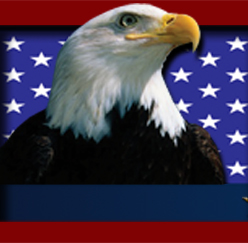


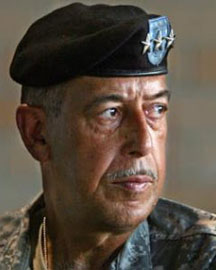

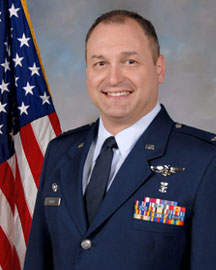
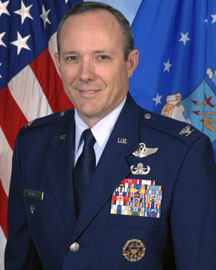
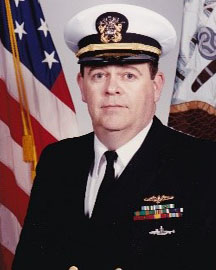
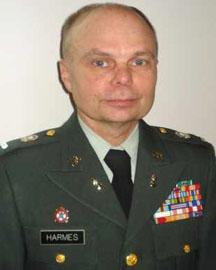




Recent Comments